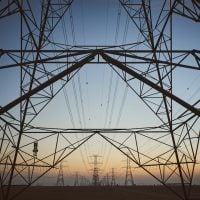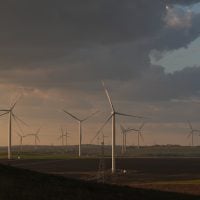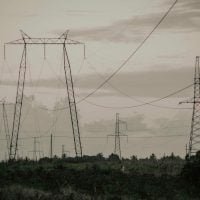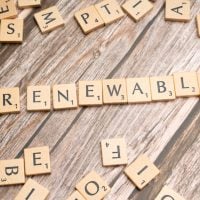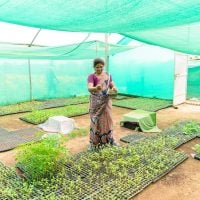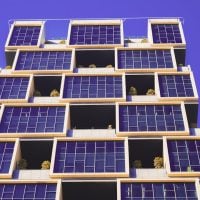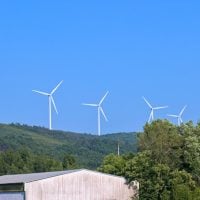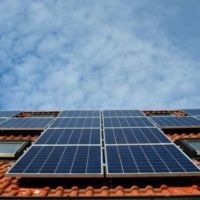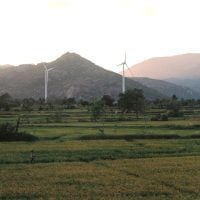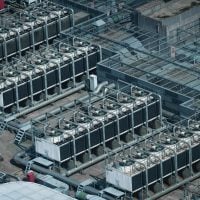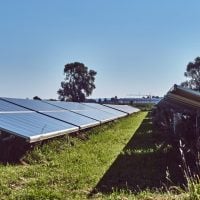Deadline: 16-Aug-2024
UN Women Nigeria is pleased to launch a Call for Proposals – Lowcost Biogas Household Production for Rural Women in Nigeria.
Through this Call, UN Women seeks to improve livelihoods for at least 750 rural women in 3 States (Bauchi, Niger and Yobe) 1200 in (Kwara, Sokoto and Yobe) through the installation of biogas units to produce homemade biogas and support to climate Smart Agriculture thereby improving the time use of women, increasing agricultural productivity and incomes of Women (by 20% increase), improving the health status of rural women and reducing deforestation, and contributing to fight against climate change.
The overall aim is to increase women’s and girls’ resilience to the impacts of climate change on their livelihoods, by increasing their access to affordable clean energy, especially cooking fuel, including by reducing both time and income poverty, as well as to improve their health status and reducing their exposure to the risks of gender-based violence. Additionally, the project aims to reduce the impact of droughts and floods by preventing continued deforestation, and to support local communities to contribute to the country’s effort to reduce greenhouse gas emissions in the energy and forestry sector, by enhancing their access to and adoption of appropriate small-scale biogas technology among farming communities to replace polluting and carbon-rich fossil fuels such as kerosene, charcoal, and firewood.
Specific Objectives
- Reduce time and income poverty of women through their increased access to affordable clean energy, especially cooking fuel, for rural women.
- Reduce women’s physical burden and health risks associated with use of wood and other solid biomass as fuel for cooking and heating.
- Increase the technical and financial capacity of rural women’s associations and cooperatives to implement climate change mitigation and adaptation strategies.
- Increase rural employment and incomes for women and youth through biogas production.
- Contribute to improving soil fertility, reducing deforestation and emission of greenhouse gas.
- Improve solid organic and liquid waste management in rural communities.
Timeframe
- Start date and end date for completion of required services/results
- The project implementation is expected to start as soon as possible upon signing of the Project Partner Agreements (PA). The grants are expected to be issued by August 2024 and be implemented through November 2024.
Proposed Activities
- Identification, mobilization, profiling, of 750 rural women farmers in Niger, Ebonyi and Bauchi States for sensitization and trainings on biogas production, maintenance, and usage (250 rural women in each state)
- Identification, mobilization, profiling, of 1200 rural women farmers in Kwara, Sokoto and Yobe States for sensitization and trainings on biogas production, maintenance, and usage (400 rural women in each state)
- Facilitate the implementation of training program for 15 technicians on biodigester installation and maintenance in each state to be integrated into the Biogas Construction Process
- Establish 3 centers to demonstrate the potential and functionality of small-scale biogas production to the target project beneficiaries/communities in the target states.
- Procurement of seedlings for demonstration farms trainings after consultation with rural farmers
- 6 Stakeholders convenings of about 15 participants during the period of the partner agreement
- 1 townhall meeting to create awareness of community members especially traditional/religious leaders, women, and youths on the use of low-cost biogas technology.
- Data Compilation of beneficiaries in project state according to community.
- Capacity building and sensitization for women in biogas technology and related rural value chains to effectively engage with financial services providers including skills to negotiate credit terms and understand their rights and responsibilities as borrowers and how to use the clean stoves and biodigester appropriately.
- Distribution of biogas materials for installation in each of the 250 houses of beneficiaries in 3 communities of quality low-cost biogas stoves and biodigesters in Bauchi, Ebonyi and Niger
- Distribution of biogas materials for installation in each of the 400 houses of beneficiaries in 3 communities of quality low-cost biogas stoves and biodigesters in Kwara, Sokoto and Yobe
- 1 TV appearance to conduct public awareness campaigns on the benefits of biogas energy use in the state local television.
Competencies
- This is a state-based grants. Organizations operating in the target states will be given priority for the grants. A competitive selection process will take place to identify potential partners. The proponents/organizations will be selected only if they have proven structures, networks, and presentence (for state-based grants), and capacity and experience to deliver the proposed activities. The organization’s capacity will be assessed by UN Women based on UN Women’s policy and procedures. The selected organizations will sign Partnership Agreements (PA) with UN Women Nigeria Country Office.
- Technical/functional competencies required
- Organizational Competencies
- Must be Legally registered non-governmental organizations (NGOs) in Nigeria.
- Must have proven track record in promoting women’s economic empowerment and promotion of the rights of women and girls, including the rights of young women and women with disabilities.
- Must have strong track record in understanding the specific local context in the areas of targeted location.
- At least 2 years of operation with minimum 3 years of specific experiences on gender equality and women empowerment (GEWE) programming.
- Strong experience in programme management and implementation particularly on women’s empowerment programmes.
- Experience in partnership/working with relevant government agencies and institutions; communities; religious and traditional leaders; women movements; local CSOs and CBOs; media and the private sector at state and federal level.
- Organizations, in addition, have verifiable grass root and community networks and linkages, structures, and presence (office, organization leadership and key staff) in the selected state, and must have in-depth ongoing or previous related activities in the specific state.
- Experience working with gate keepers such as male champions of gender equality, religious and traditional leaders.
- Team Leader, the overall team leader should have
- Must be a Nigerian national with bachelor’s degree (or equivalent) in International Development Studies, Social Sciences, Agriculture, Politics, Law, Human Rights, Gender, Women Studies, Economics, Monitoring, and Evaluation or related field. A Master degree is an added advantage.
- Minimum of 5 years of relevant experience in overseeing and leading the implementation of women’s rights, gender equality, women’s empowerment programmes.
- Substantive experience in managing and implementing similar projects.
- Proven experience in producing coherent, clear analytic reports and knowledge products.
- Excellent communication skills and fluent in English and local language of the target state.
- Team members, facilitators, and other members will be assessed on the following
- Must be a Nigerian national with bachelor’s degree in agriculture, Social Sciences, Politics, Law, Human Rights, Gender, Women Studies, Economics, Monitoring, and Evaluation or related field is preferred. WAEC/NECO school graduation is required as a minimum for team members.
- Experience in working with civil society and community-based organizations, including project/programme management.
- Professional experience on women’s empowerment, promoting local/community-owned initiative to advance gender equality and empowerment of women and girls.
- Experience working in promoting peaceful and resilient communities is desirable.
- Fluent in English and other dialects as relevant in English and other local languages/dialects in the state of implementation as relevant.
- Organizational Competencies
For more information, visit UN Women.

